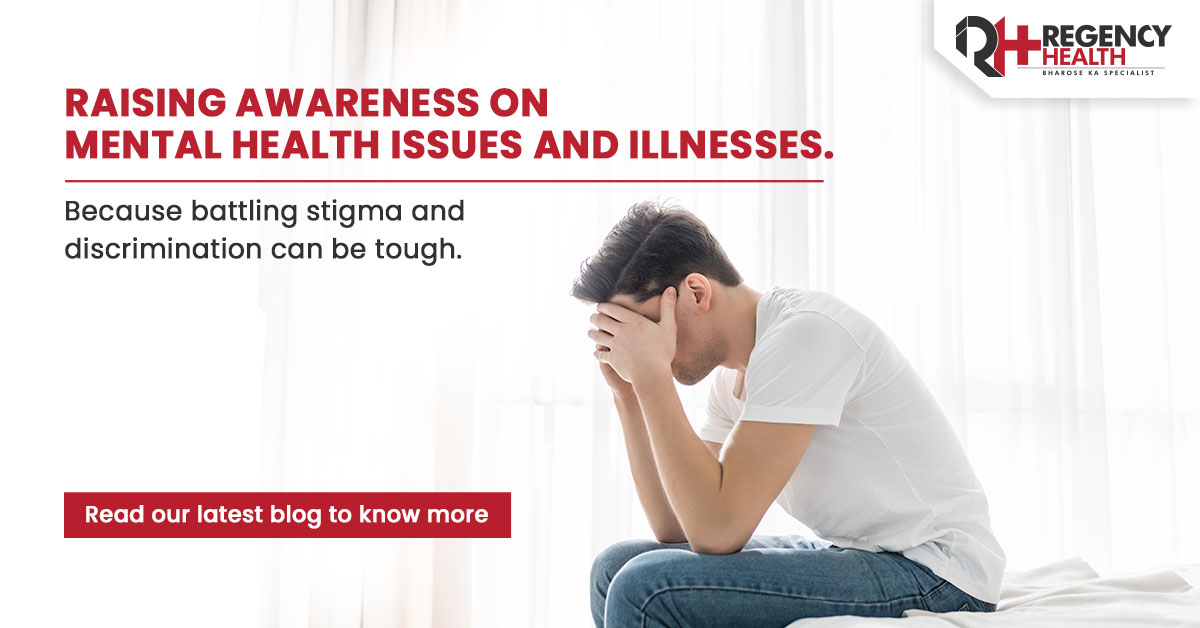
Mental health issues are disorders that create abnormalities in how a person thinks, feels, and behaves in social situations. These issues can create significant difficulties in a person’s relationships with others and can even lead to them creating unsafe conditions for others. While some mental health disorders can be treated through medication and proper counselling, others stay lifelong with a person. Most of these mental health disorders require medication along with expert help and can cause major complications if left unattended. Over the last few years, there has been a growing awareness of the matters of mental health. World Mental Health Day organized by World Health Organization (WHO) is one such initiative aimed at mobilizing efforts in this direction.
Let us now take a look at some of the most common mental health issues faced by people worldwide.
Depression– One of the most common mental health conditions, depression typically causes a person to be engulfed with gloom at regular intervals. Depression also results in a loss of energy, mood, and ability to appreciate happy occasions. A fully functioning person can also show symptoms of depression hence it is highly recommended to seek professional help.
ADHD – Attention Deficit Hyperactive Disorder (ADHD) is a condition that causes a lack of focus and an inability to learn things. This is mostly found in kids but more than 50% of them are unable to cope with it and carry it into their adult life as well. ADHD can lead to impulsive behaviour and cause problems in personal life as well as professional growth.
Anxiety – Anxiety disorder is typically characterized by fear of unknown social situations, panic attacks, racing thoughts, insomnia, and nightmares. This situation often causes patients to live a sheltered life with a refusal to open up to new avenues. Immediate professional counseling can help in handling anxiety disorders better.
Bipolar Disorder – Bipolar Disorder is one of the most severe mental health issues plaguing people worldwide. This condition causes a person to have massive mood swings and display multiple behavioural traits that are on opposite ends of the spectrum.
Schizophrenia – This condition leads to severe hallucinations and mental stress. The patient is usually unable to communicate effectively with others. While the origins of this condition are not known entirely, it is generally triggered by genetic predisposition. People with Schizophrenia have a high chance of committing suicide and the condition can cause a severe lack of motivation.
Eating Disorder- Eating disorders can have a massive impact on a person’s mental as well as physical health. Binge eating, anorexia, and bulimia are some of the common eating disorders causing a patient’s unhealthy relationship with food. Severe weight fluctuations, fatigue, and dizziness are some of the common symptoms of eating disorders.
Borderline Personality Disorders- This is another condition caused by severe mood fluctuations often out of the patient’s control. Major anger issues, emotional instability, and impulsive behaviour are some of the key indicators of Borderline Personality Disorder. If left unattended, this condition can lead to paranoia as well.
PTSD- Post Traumatic Stress Disorder (PTSD) is a condition triggered by a frightening accident or a memory causing the person to be overwhelmed by thoughts. The person often has triggering flashbacks of the trauma and might suffer from insomnia and an inability to function in a social setting. Wars, childhood sexual abuse, scary incidents, and natural disasters are some of the most common causes of PTSD. There are severe super speciality hospitals offering treatments like EMDR (Eye Movement Desensitisation and Reprocessing) that have proven quite beneficial for patients suffering from PTSD.
Psychosis- Psychosis causes people to have delusions, confusion, and hallucinations. This condition can lead to other issues like schizophrenia, mood swings, and drug-induced psychosis. Psychosis symptoms can be controlled through medication and proper counseling.
Dissociative Disorders – Dissociation is a process where a person stays detached from their identity, feelings, and personality. The person typically suppresses their expressions and keeps aloof. Most mental health professionals claim childhood trauma to be a cause of dissociative disorder. This condition can be treated with proper counseling and care from loved ones.

 Call-an-Ambulance
Call-an-Ambulance



